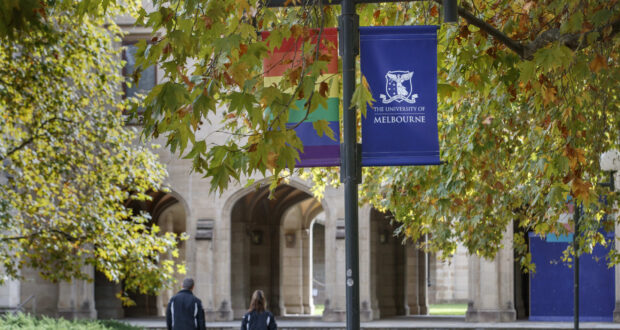The University of Melbourne has admitted it breached fair work legislation and has been fined almost $75,000 in the Federal Court after it threatened two casual academic staff members.
The Fair Work Ombudsman pursued legal action against the university when two staff members complained they had been threatened for claiming payment of work outside their contracted hours.
The staff members made a complaint to their supervisor, who they claimed then threatened them with words to the effect of: “If you claim outside your contracted hours, don’t expect work next year.”
One of the staff members, who tried to claim five additional hours, was not re-employed by the university, and was labelled a "self-entitled Y-genner" by their supervisor.
Under the Fair Work Act, it is unlawful for an employer to take adverse action against an employee because they exercised a workplace right.
Judge Craig Dowling found the university breached the Fair Work Act on two occasions.
The first instance was when it threatened the staff members and the second was when one of the casual academics was not re-employed.
In his judgment, Judge Dowling said the staff members were entitled to be paid for work they performed as casual academics, and they were entitled to complain to their supervisor about their ability to work within their contracted hours.
Judge Dowling said those complaints should have been free of consequence, especially when they were dependent on the university for re-employment.
He said the actions were serious contraventions of the Fair Work Act.
Fair Work Ombudsman Anna Booth said the University of Melbourne’s conduct – which it admitted – impacted on fundamental employee rights.
“There is zero place for adverse action in our workplaces,” she said.
“Adverse action directly undermines workplace laws and the ability of employees to exercise their lawful rights – and this is unacceptable.
“These adverse actions in this case are exactly the kind of workplace conduct that inhibits people speaking up about their rights.”
Ms Booth said Fair Work was investigating other allegations involving underpayment issues in multiple universities nationally, including failures to pay casual academics for all hours worked.
“The university sector is a regulatory priority for the agency,” she said.
“Employers should have proactive measures in place to ensure they are meeting workplace laws.
“If employers become aware of concerns their employees may be being underpaid, including directly from the employees, the only appropriate response is to check that they are paying their employees correctly and promptly rectify any compliance issues discovered.”
National Tertiary Education Union (NTEU) president Alison Barnes said it is an issue that two-thirds of university staff are employed "insecurely".
"Melbourne University is the higher education sector’s number one wage thief with $45 million in underpayments in recent years," she said.
"A $75,000 fine is welcome, but shocking incidents like this will keep happening unless there’s major changes to universities’ broken governance model."
Federation University cuts 200 jobs
NTEU members at Federation University in regional Victoria are calling for its vice-chancellor and president, Duncan Bentley, to resign after significant job cuts were announced in late March.
About 200 of the university workers will lose their jobs as the institution grapples with a loss of more than $79m in revenue in the past five years due to a halving of international students numbers between 2019 and 2023.
Voluntary redundancies were offered to staff university-wide last week and will take effect throughout April, with firings to follow depending on the uptake of voluntary departures.
The university has announced a "major transformation program," and aims to save $20m in 2024 to return to an operating surplus from 2026.
Union members criticised Mr Bentley, along with the uni's chief financial officer, John Blair, for poor record and finance management and a 'lack of vision for the future' at a mass meeting.
President of NTEU FedUni branch Dr Mathew Abbott said 200 jobs is 12 per cent of the uni's total workforce, and staff were already stretched.
“Members are organising again to stop these cuts and we know students and community members are behind us," he said.
“Federation University attracts diverse students, often from low-SES backgrounds, and cutting courses and removing staff who work hard to support our students will not solve our revenue problems but stands to make them worse instead.
“Our university simply cannot sustain cuts of this scale.”
The branch leader said union members are confident in the decision following their successful dispute of the uni's decision to cut the Bachelor or Arts program in 2022.
Mr Bentley said Australian universities had faced challenges since Covid-19.
“As a public university, we have an obligation to ensure we operate sustainably and are generating sufficient surpluses to reinvest in students, staff, and teaching and research,” he said.
“Our transformation requires difficult decisions – we acknowledge the impact of these on our people and communities and we will be doing everything we can to support them through the process.
“The decisions are necessary for us to strengthen investment in the strategies that set Federation apart and underpin our long-term growth.
“Central among these is our co-operative learning model – getting students work-ready through direct connection to employers, paid placements, career preparation and workplace skill development.”
The university said the job cutting “removes duplication and red tape and allows for strengthened investment in the student experience, technology, high-quality teaching and research, and an expansion of regional industry partnerships”.
Federation University has campuses in Ballarat, the Wimmera, Gippsland, and Berwick.
The university cut 21 courses in 2024 but added 26 different ones.
Do you have an idea for a story?Email [email protected]
 Campus Review The latest in higher education news
Campus Review The latest in higher education news


